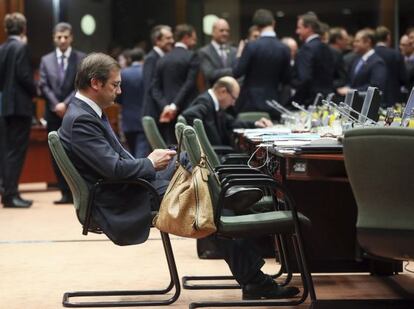Top Portugal court throws out retirement payment cut
Decrease was meant to apply to benefits of state workers


The Portuguese Constitutional Court has thrown out one of the key aspects of next year’s state budget, forcing the center-right government of Prime Minister Pedro Passos Coelho to go back to the drawing board and find other measures to meet the deficit-reduction target agreed with the IMF and the European Union as part of its 78-billion-euro bailout program.
The court ruled as unconstitutional the government’s decision to cut the state pension of civil servants in order to bring what they receive in line with private-sector workers.
The decision taken unanimously by the judges was based on the “constitutional principle of confidence,” meaning that there should be no retroactive changes to situations previously established by law that violate the concept of legal security.
The court also pointed out that the section of the population affected by the law is one that is “vulnerable” and had formed “life expectations based on the pension amount” to be received.
Six months ago the Constitutional Court also threw out one of the most important measures included in this year’s budget, which was the abolition of extra monthly payments to civil servants and pensioners. That forced the government to find other ways of reaping budget savings of 1.2 billion euros. With the court’s decision against the cut in civil servant pensions, the administration will have to find other measures to cover a planned cut in spending of 400 million euros.
One of the options being considered is further hikes in taxes. In last year’s budget, personal income taxes were raised by the equivalent of one month’s salary in the case of most workers. The Portuguese media has speculated that Passos Coelho might opt for another increase in the value-added tax, the standard rate of which was raised to 23 percent — one of the main reasons why swathes of the population have reined in their spending, with the hostelry trade one of the worst-hit sectors.
The IMF and the EU decided to await the court’s decision before disbursing a 2.7-billion-euro tranche of the bailout.
Tu suscripción se está usando en otro dispositivo
¿Quieres añadir otro usuario a tu suscripción?
Si continúas leyendo en este dispositivo, no se podrá leer en el otro.
FlechaTu suscripción se está usando en otro dispositivo y solo puedes acceder a EL PAÍS desde un dispositivo a la vez.
Si quieres compartir tu cuenta, cambia tu suscripción a la modalidad Premium, así podrás añadir otro usuario. Cada uno accederá con su propia cuenta de email, lo que os permitirá personalizar vuestra experiencia en EL PAÍS.
¿Tienes una suscripción de empresa? Accede aquí para contratar más cuentas.
En el caso de no saber quién está usando tu cuenta, te recomendamos cambiar tu contraseña aquí.
Si decides continuar compartiendo tu cuenta, este mensaje se mostrará en tu dispositivo y en el de la otra persona que está usando tu cuenta de forma indefinida, afectando a tu experiencia de lectura. Puedes consultar aquí los términos y condiciones de la suscripción digital.








































